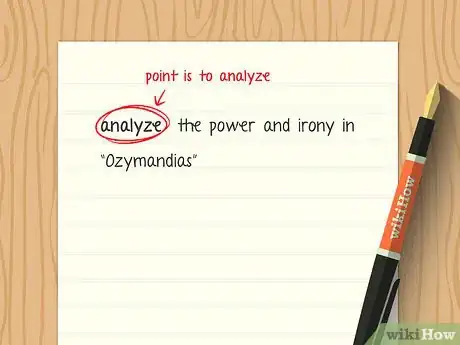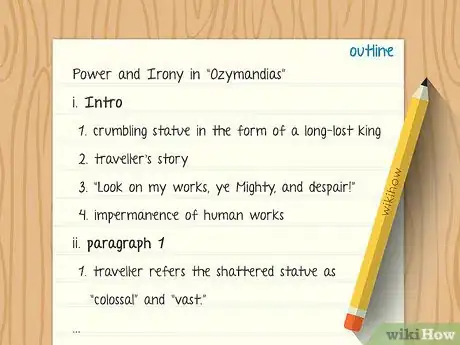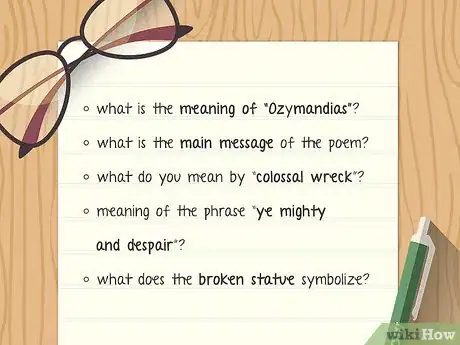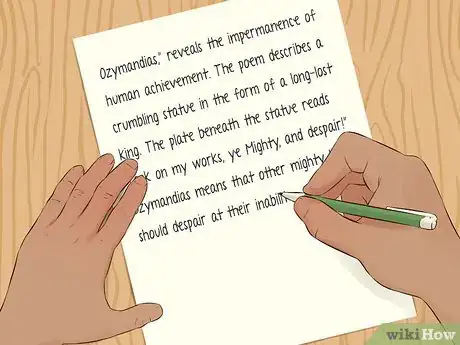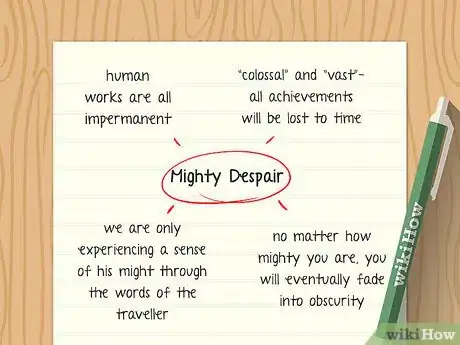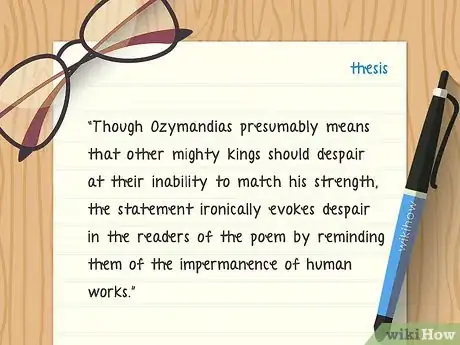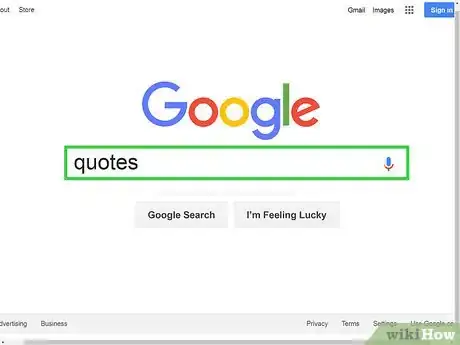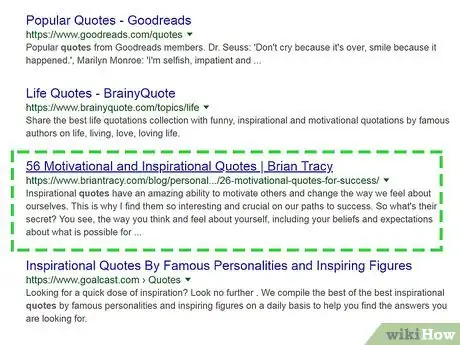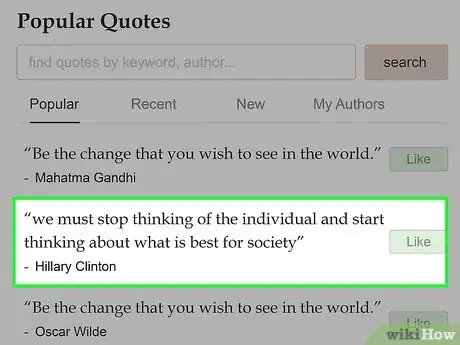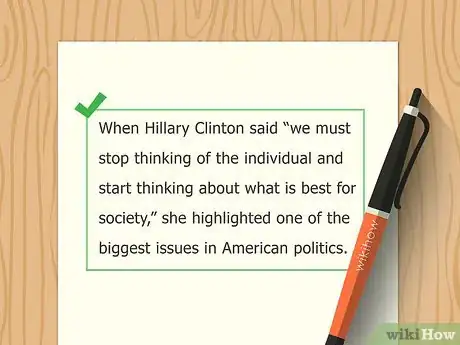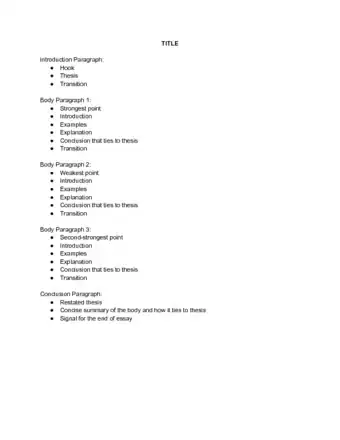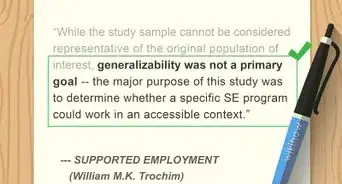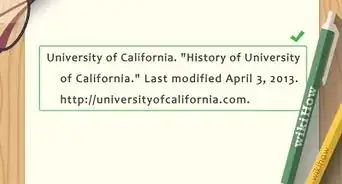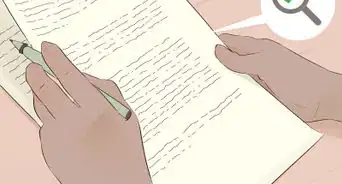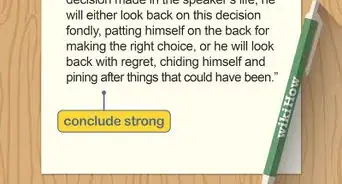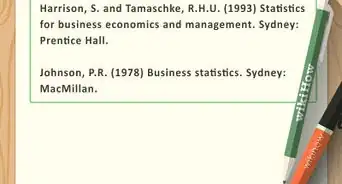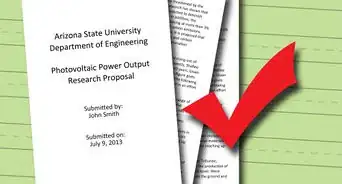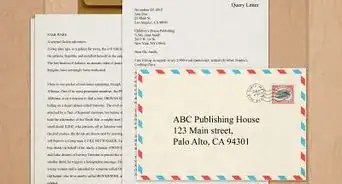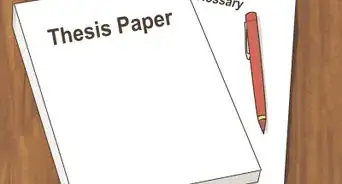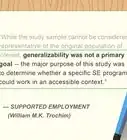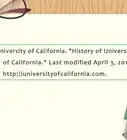This article was co-authored by Richard Perkins. Richard Perkins is a Writing Coach, Academic English Coordinator, and the Founder of PLC Learning Center. With over 24 years of education experience, he gives teachers tools to teach writing to students and works with elementary to university level students to become proficient, confident writers. Richard is a fellow at the National Writing Project. As a teacher leader and consultant at California State University Long Beach's Global Education Project, Mr. Perkins creates and presents teacher workshops that integrate the U.N.'s 17 Sustainable Development Goals in the K-12 curriculum. He holds a BA in Communications and TV from The University of Southern California and an MEd from California State University Dominguez Hills.
This article has been viewed 116,828 times.
You finally sat down to start this crazy journey of writing a paper, but you realize you are stuck on how to even start. This is the toughest obstacle to overcome; writing the introductory paragraph can be a frustrating and slow process–but it doesn't have to be. Here are a few ideas to get your mind rolling.
Steps
Starting With a Question
-
1Think about the point of your paper. If you are covering research, there is a definite answer your research has provided. What was the question?[1]
- This can be as abstract or concrete as you see fit. It could be the direct questions your paper poses or it could be a question directly stated to the reader, asking them for their thoughts and opinions.
-
2Write an outline of your paper. Just because you can't come up with an introduction doesn't mean you can't write a skeleton of what you want to say. Cover the main and supporting points; don't worry about detail.[2] [3]
- Spend at least 5 minutes outlining your paper.[4]
- This outline will help you realize what it is your paper says. That way, you'll be able to understand what questions you are asking and answering.
Advertisement -
3Come up with a short list of questions and choose one. Using your outline, come up with 2 or 3 questions that your paper touches upon. Seeing as your paper probably has at least 3 points, try to have one question per point.
- Think of what you are clarifying with your paper. If there is a standard point of view your paper is challenging, your could ask a question of the accepted definition of a word, concept, or societal norm.
- Choose the question that speaks strongest to your work as a whole. It'll be the one that's easiest to transition from into the bulk of your paper.
Starting With Your Thesis
-
1Write a rough draft of your work. It by no means has to be perfect -- it only has to outline what you want to say. Cover all the main points with supporting evidence, but don't worry about transitions now. Have a general idea of your purpose in mind.
- Having a paper to work off of makes it much easier to see the overall arc of your work. Without it, all the information is just floating around in your head, unorganized.
- Keep in mind which points are strongest and which are weakest. If any just don't seem to fit right, throw them out now.
-
2Find the connection between all your points. Before your paper, you had "pollution is bad." An idea to start off with, but definitely not anything revelatory. Now, hopefully, you can narrow it down -- "Consumption by the world's largest economies needs to be cut in half by 2020" is much better.[5]
- How do all your points agree? What does their agreement say that you didn't necessarily set out to write? Does their agreement expose anything to strengthen your argument?
-
3Start with your thesis. Now that you've found out what it is exactly you're writing about, go. Come out with it right out of the gate. Your introduction will be direct and to the point; you can deal with the details later.[6]
- Consider the following example: "The illusion of power drives men to do many things. It causes them to go mad, to destroy, and to distrust. In Crime and Punishment, Raskolnikov does all this in his quest to become an Übermensch and seize the power he believes he deserves."[7] With this start, the reader knows exactly what to expect and how the author feels about the work. A solid thesis and a solid start to the paper.
Starting With a Quote
-
1Attain access to the internet. If you do not have a computer at home, go to your school/college library and schedule some time to use theirs. It'll be much easier to sift through quotes if you're on a desktop or laptop; a smaller device will limit the efficiency of your search.
-
2Google quotes. A number of websites will pop up. Most of them will have categories for you to narrow down your search. Consider the themes of the piece you're analyzing as you skim for quotes.
-
3Go through a few of the search result sites and find one you like. Then bookmark it for future use. BrainyQuote and GoodReads are two good sites to start from. You can search by category or by author.
-
4Find a quote that captures the topic or feel of your paper. It only has to abstractly allude to the themes or timeframe of your work. If you can find one by the same author, great![8]
- Hit Ctrl + F to search for specific words; you may be able to find a quote much quicker this way if you have something very precise in mind.
-
5Copy the quote into your paper. Make sure you mention who said or wrote the quote originally; no plagiarism please! Start with the quote and lead into your analysis with how the two connect.
- Analyze your quote for a second. Think of the main words in the quote to draw the connection to your paper. You do not need a long quote to get your point across.
- For other ideas on writing compelling hooks, look at news headlines and see what grabs you. Do they start with questions? Do they share interesting facts?[9]
Essay Template and Sample Essays
Community Q&A
-
QuestionHow do I get motivated to write a paper?
 Richard PerkinsRichard Perkins is a Writing Coach, Academic English Coordinator, and the Founder of PLC Learning Center. With over 24 years of education experience, he gives teachers tools to teach writing to students and works with elementary to university level students to become proficient, confident writers. Richard is a fellow at the National Writing Project. As a teacher leader and consultant at California State University Long Beach's Global Education Project, Mr. Perkins creates and presents teacher workshops that integrate the U.N.'s 17 Sustainable Development Goals in the K-12 curriculum. He holds a BA in Communications and TV from The University of Southern California and an MEd from California State University Dominguez Hills.
Richard PerkinsRichard Perkins is a Writing Coach, Academic English Coordinator, and the Founder of PLC Learning Center. With over 24 years of education experience, he gives teachers tools to teach writing to students and works with elementary to university level students to become proficient, confident writers. Richard is a fellow at the National Writing Project. As a teacher leader and consultant at California State University Long Beach's Global Education Project, Mr. Perkins creates and presents teacher workshops that integrate the U.N.'s 17 Sustainable Development Goals in the K-12 curriculum. He holds a BA in Communications and TV from The University of Southern California and an MEd from California State University Dominguez Hills.
Writing Coach & Academic English Coordinator If you're under pressure and unmotivated to write, experiment working with the "five and five" rule. Every single time you write, spend five minutes planning so that you have a good structure to work on. Then, after writing your paper, spend another five minutes reviewing your work.
If you're under pressure and unmotivated to write, experiment working with the "five and five" rule. Every single time you write, spend five minutes planning so that you have a good structure to work on. Then, after writing your paper, spend another five minutes reviewing your work. -
QuestionHow do I start a research paper about same sex marriage?
 PhantasmagoriaCommunity AnswerThat depends on what angle you're taking on the topic. Is it an informative paper about the history of the subject? Or a persuasive paper on a certain stance? Consider what you're writing about first, and get a good idea of what you need to say. Organize your ideas, then start with your thesis statement (what you think or what you're going to say about the subject).
PhantasmagoriaCommunity AnswerThat depends on what angle you're taking on the topic. Is it an informative paper about the history of the subject? Or a persuasive paper on a certain stance? Consider what you're writing about first, and get a good idea of what you need to say. Organize your ideas, then start with your thesis statement (what you think or what you're going to say about the subject).
Warnings
- Never plagiarize. You will get a zero on your paper.⧼thumbs_response⧽
References
- ↑ https://writingcenter.unc.edu/tips-and-tools/introductions/
- ↑ Richard Perkins. Writing Coach & Academic English Coordinator. Expert Interview. 1 September 2021.
- ↑ https://www.fastweb.com/student-life/articles/essay-tips-7-tips-on-writing-an-effective-essay
- ↑ Richard Perkins. Writing Coach & Academic English Coordinator. Expert Interview. 1 September 2021.
- ↑ http://www.cws.illinois.edu/workshop/writers/tips/thesis/
- ↑ https://www.fastweb.com/student-life/articles/essay-tips-7-tips-on-writing-an-effective-essay
- ↑ http://www.essayforum.com/essays-term-papers-1/to-start-essay-especially-first-paragraph-1875/
- ↑ https://writingcenter.unc.edu/tips-and-tools/introductions/
- ↑ Richard Perkins. Writing Coach & Academic English Coordinator. Expert Interview. 1 September 2021.
About This Article
To start a paper, try opening with a quote that's relevant to your topic. Just make sure you mention who wrote or said the quote so you're not plagiarizing. You can also try starting your essay with a question that relates to your topic. To come up with a good question, take a look at your research and determine what questions it answers. Then, choose one of those questions to open your essay with. For tips on how to come up with a thesis to start a paper with, scroll down!
